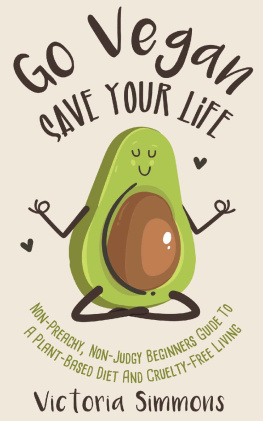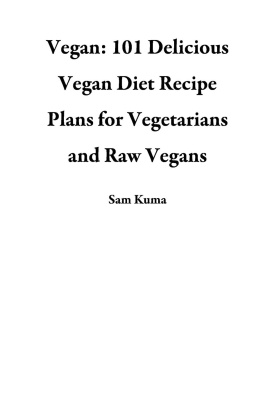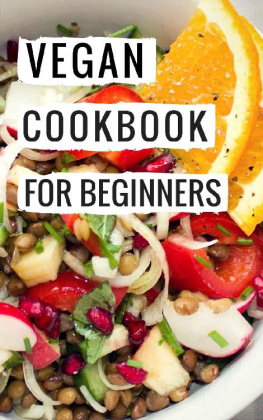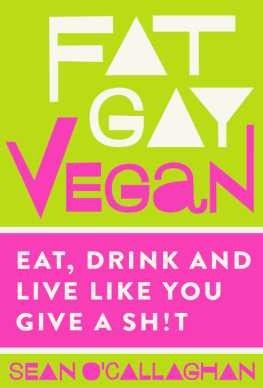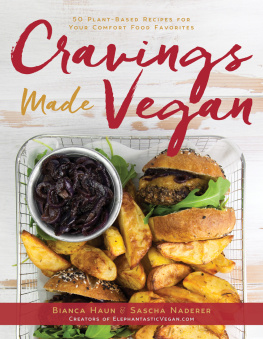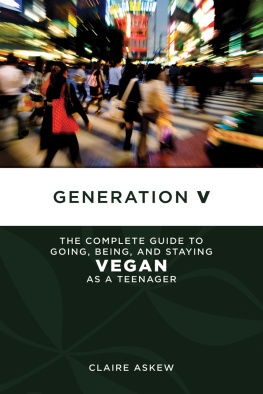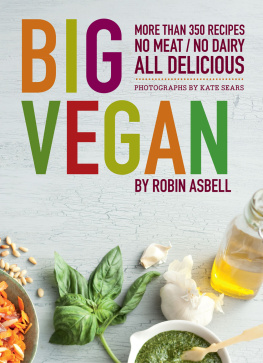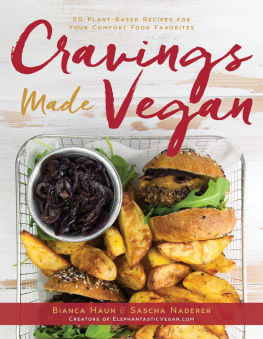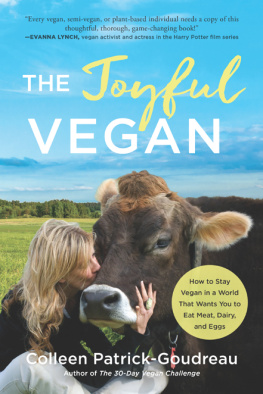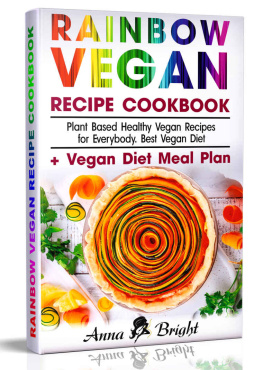
Special thanks to Super Thinkers
Jane Patterson
Sebastiano Cossia Castiglioni
Roger Leese
Contents
If you have to compromise, be sure to compromise up.
Eleanor Roosevelt
To Roger
To Matt
Introduction
In this book, we ask you to set aside any preconceived notions about veganism and let yourself be open to our conversations. Through a personal, often imperfect and sometimes irreverent lens, we explore a variety of contemporary topics related to animal use and veganism in the context of everyday modern life. From the basics of vegan logic, to politics, economics, love and other aspects of being human, every chapter invites you into a thought-provoking conversation about your daily ethical decisions.
We present to you a series of essays for discussion, culminating in the final chapter, where we challenge you to apply the broad concepts explored throughout the book to practical thought experiments. In addition, at the end of each chapter, you will find Takeaways summarising the principal ideas weve covered in each. By combining exploratory essays alongside hypothetical scenarios, we aim to help readers accomplish two goals. First, to think about veganism as the simple concept that using animals is unjustified and unnecessary. And second, to encourage and facilitate positive and productive conversations within and across social communities.
We dont believe you need another source of heartrending pictures or descriptions of gore relating to animal farming attempting to guilt you into something. We offer an alternative by engaging you in conversations and giving you the tools to navigate the issues and arrive at your own conclusions. If, like us, youre concerned about animals, people, health and the environment, we aim to show you how all these concerns are connected and how veganism is the ethical choice addressing them. Well do this by sharing personal stories about how we became vegan, exploring the basic ethical ideas under-pinning veganism and by showing how half-measures, such as fur, cruelty or meat reduction campaigns, are ultimately unsatisfactory.
We want our essays to enable you to analyse and pull apart ethical issues, questions and dilemmas you might face related to using animals for food. These essays will act as benchmarks for your rediscovery of the ways by which you view the human use of animals.
From our own experiences, we know anyone can understand veganism and we can be especially effective in discussing it with others when we take the time to be informed and think with clarity. You may find some of our positions challenge a variety of socially accepted norms or practices: brilliant. We hope these challenges will help all of us question our choices and actions. After all, we should always be asking why we do what we do.
Although our primary focus in this work is the injustice of animal use, we recognise that societys systemic injustices are related and interconnected. Seeking a fair world for animals means we must also seek to reject and redress the injustices perpetrated on humans. These arent mutually exclusive goals, or mutually exclusive ideas. Seeing the vulnerability of one will open our mind, eyes and heart to the other. All human injustices may be opposed, fought, addressed, dismantled, read, written, learned and talked about, whilst sticking to eating plants and being vegan.
If youre not vegan and, through this book, we provide you with compelling reasons for you to choose veganism, then great! If youre not yet ready to go vegan, we believe this book is still a valuable resource for everyone to make new, thoughtful connections with ethical principles in their lives.
For how to go vegan, there are many free and helpful resources online. Simple searches on the Internet, in your public library or local bookshop will yield many resources for vegan recipes and tips on cooking, where to find anything from vegan clothing, footwear and accessories, personal care and home cleaning products, to vegan restaurants in your city and elsewhere. For nutrition advice, we recommend consulting the resources we cite in .
Emi & Eva

Basics
What it means to be vegan and the basic ethical concepts at its heart.
What Does It Mean to Be Vegan?
In this first essay, we set out the fundamental concepts. From who vegans are, to the meaning of the terms vegan and speciesism , to the core problem of use, each of these concepts will echo throughout this book. We also reconcile the reality of being vegan in a non-vegan world, and recognise the inter-connections of oppression with a call to reject all bigotry.
Vegans are just like you, we promise
Despite the stereotypes, you wont necessarily recognise a vegan. Vegans come in all ages, shapes, colours, sizes, religions, sexual orientations, gender identities, socio-economic backgrounds or classes, levels of education, senses of fashion, physical abilities, geographical locations, politics and any other differences in our human family. Very few people are vegan from birth. Most vegans have only been vegan for part of their lives. Some initially balked at the idea of veganism or rejected the concepts multiple times.
All vegans have one thing in common: a moment where a thought, a realisation or an argument for veganism resonated with them to such an extent they embraced changing their mind and behaviour about how they related to animals. That moment when something confronts us and challenges our usual way of thinking or of doing things, thats the crack in our understanding. Thats the moment we let the light in to make change happen.
Rejecting speciesism
Speciesism is the notion that humans are superior to animals. This notion is the current norm accepted by the overwhelming majority of people. Speciesism manifests itself in our viewing animals as objects and using them in a variety of ways, primarily for food.
Therefore, to the extent possible and practicable , vegans avoid using animals for food, clothing, entertainment or any other purpose. This means vegans dont consume animal flesh, fish, insects, molluscs, eggs, dairy, cheese and honey; dont ride horses, visit zoos or aquariums; and dont wear leather, fur, wool or silk.
Vegans reject speciesism and accept animals into the same moral sphere as humans with respect to fundamental rights, such as the right to live and the right to be free from ownership as anothers property. The basis for this is the basic rule of fairness: accord the same moral treatment to everyone, unless theres a morally relevant reason to justify treating someone differently (for example, not allowing human children, or non-human animals, the vote).
How are non-human animals and human animals the same and why should we share the same moral sphere? We all belong to the animal kingdom, with humans evolving later than many non-human animal species. Put simply, all animals, including humans, arent objects . We understand this when we look at our companion animals and its not a new concept. Around 530 bce, Pythagoras, Greek philosopher and mathematician, believed animals werent objects based on his belief in the transmigration of souls. British lawyer and philosopher Jeremy Bentham further advanced Western ethical notions of animals when, in the eighteenth century, he wrote:


